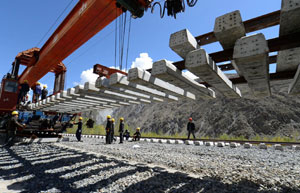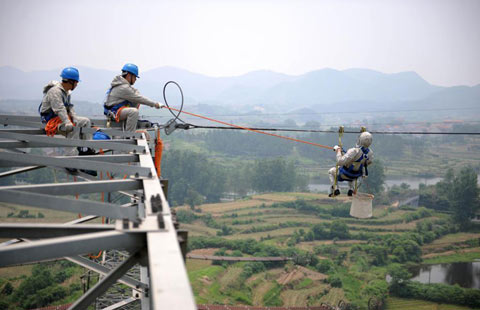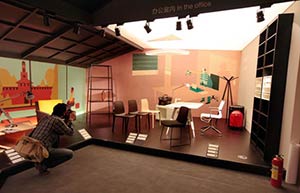So long snail, adieu sail, guten tag rail
By Luo Wangshu, Ji Jin and Tan Yingzi in Chongqing (China Daily) Updated: 2014-06-16 07:07As snail mail bites the dust and sail mail disappears into the sunset, there is something just as old-fashioned to hail: rail.
For those in Europe keen to get their hands on the latest laptop computer, that means not needing to wait a nanosecond longer than they need to.
The key to it all is a railway line linking Chongqing in Southwest China, to Duisburg, Germany, that opened in 2011.
"In exporting laptops to Europe, that link saves up to two weeks," says Ke Bin, president of Asus Chongqing. The sea voyage takes almost twice the time.
In most cases, manufacturers used to put the laptops on trucks bound for Shanghai or Tianjin, and they were then put on ships bound for Europe, taking about 25 days. Alternatively, they could be sent by air, adding considerably to the cost.
European buyers of many goods made in China, including computers, are now taking advantage of a logistics system in Chongqing that is growing more sophisticated by the day to get their goods from the factory floor to the shop as rapidly as possible.
In 2013, 48.7 million laptop computers were exported from Chongqing, a third of them to Europe.
Zhang Yonghong, president of Acer Greater China, sees the logistics system connecting the company's factory in Chongqing to the European supply chain as a huge benefit, but rail does not have to be a standalone solution. "A combination of ocean-railway shipments provides sufficient logistics support to customers with different needs."
By the end of last year, 94 journeys had been completed on the Chongqing-Xinjiang-Europe International Railway - 36 in 2013, 41 in 2012 and 17 in 2011. The total value of goods carried was $2 billion.
 |
 |
| Railway a growth engine for Sino-German trade |
- Chongqing to build 100 takeoff, landing points for helicopters
- Chongqing Yuelai International Center receives 50,000 visitors
- South Korean agricultural food exhibition held in Chongqing
- Chongqing Liangjiang New Area integrates administrative resources
- Chongqing's transport system paves way for international trade
- Premier Li Keqiang inspects Chongqing Guoyuan Port and Chongqing Light Rail Line 6
- CMB reveals credit to financial leasing companies
- 19 cities to develop Silk Road tourism
- UOB lender opens Shanghai FTZ branch
- Africa has to make the best of China ties
- China, Central Asian countries open 3rd gas line
- Asia faces challenge of income disparity
- 17.3b yuan lock-up shares eligible for trade
- Labor laws need to be overhauled

















